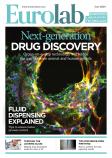Dr. Jie Zhang reveals how a biotechnology expert is currently focusing on the serological study of Covid-19
Sino Biological and Nanommune have introduced the CoVam coronavirus array under Sino Biological’s new brand Sinommune, which is a multiplex assay platform for high-throughput serological studies.
These arrays are designed to determine the antibody profile in serum samples and monitor their changes over time under different circumstances. The arrays are suitable for epidemiology studies, as they can be used as a serologic surveillance tool to determine the prevalence of the infection during an epidemic. Fig. 1 showed the result from a recent jointed study published. The heat map clearly showed a distinct IgG reactivity towards SARS-CoV-2 in eight convalescent specimens from recovered Covid-19 patients.
Covid-19 Serological studies
This latest development marks a milestone in the company’s efforts to develop solutions for serological studies of the deadly virus. Sino Biological believes it is the first company to produce recombinant proteins of SARS-CoV-2. The company launched the spike protein on Jan 22, only 12 days after the sequence was published. Since then the company has developed a large panel of reagents for Covid-19 research. These reagents have supported hundreds of research groups around the world with their vaccine and antibody development work. The company is also offering pseudovirus-based infection assay services, allowing rapid screening of antibodies and compounds for neutralisation potential.
The most important application of these reagents is in serological diagnostics, both in forms of antigen detection and antibody detection. These reagents have already been used to manufacture FDA-approved diagnostic kits in the USA. Several monoclonal antibodies developed by Sino Biological have been used in clinical testing of antigen detection and received promising early results.
Earlier this year, the company received support from the Bill & Melinda Gates Foundation on colloidal gold and ELISA-based diagnosis of Covid-19. The fund will be specifically used for the optimisation of key antigen and antibodies needed for rapid and high throughput detection of SARS-CoV-2.
Sino Biological and Nanommune’s viral antigen bank
The firm has been engaged in the field of infectious disease research long before the Covid-19 outbreak. Powered by its HEK293 and baculovirus-insect cells based recombinant platform monoclonal antibody programs, it has built a huge collection of reagents over the years. In March, it officially announced the launch of what it believes to be the world’s largest viral antigen bank, ProVir. This collection features over 800 antigens from 350 virus strains, including Zika, Ebola, Dengue, RSV, HIV, and HPV. It’s noteworthy that the ProVir collection also carries 600+ HA, NA, and ME antigens from 250 strains of influenza viruses, including vaccine strains and the pandemic strains such as the 2009 swine flu (A/California/04/2009 (H1N1)). Development of other 150 antigens is currently under way.
Dr. Jie Zhang is with Sino Biological








